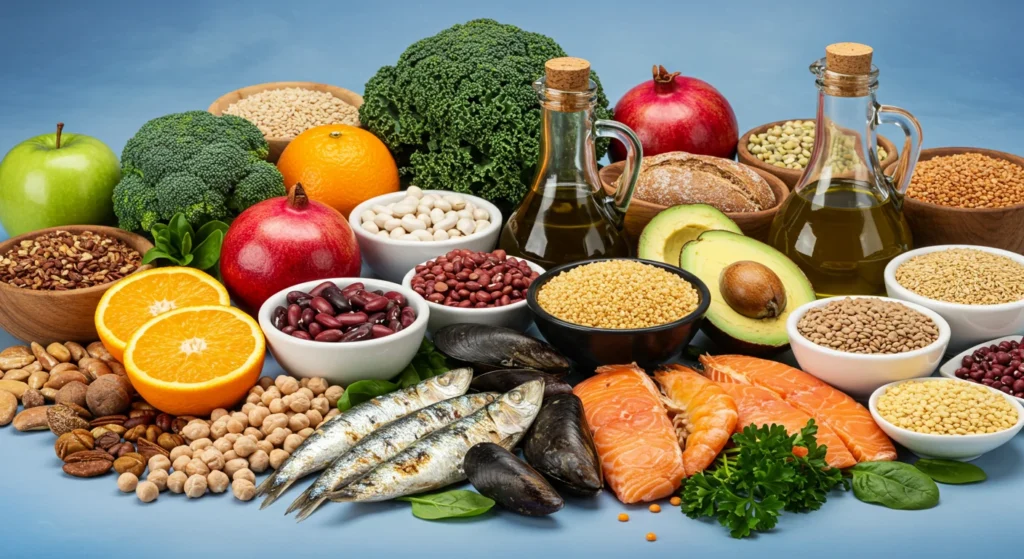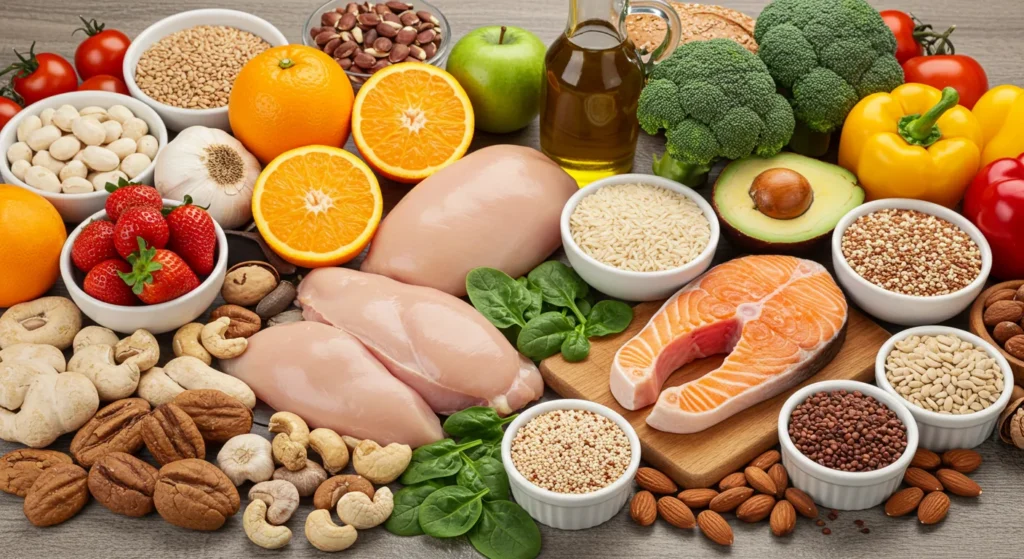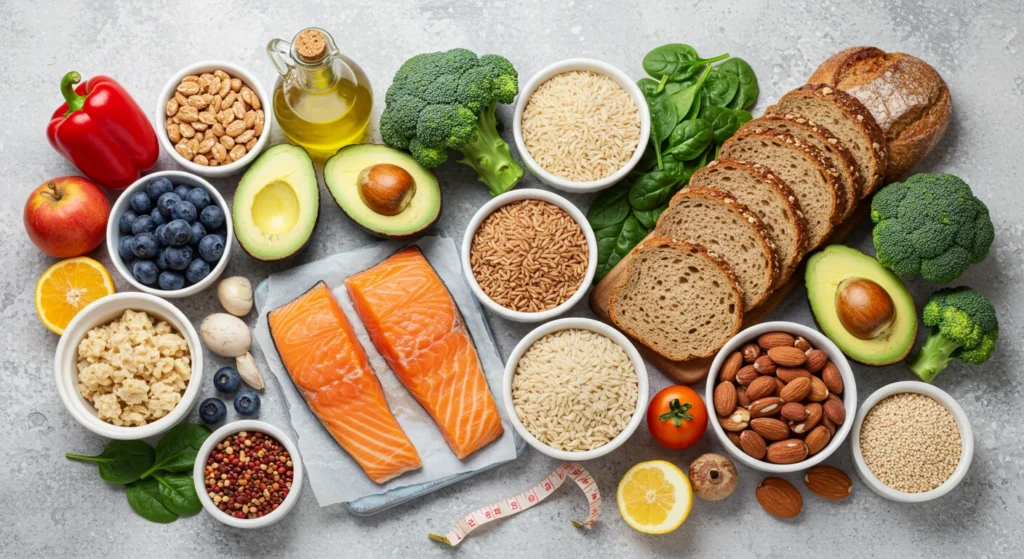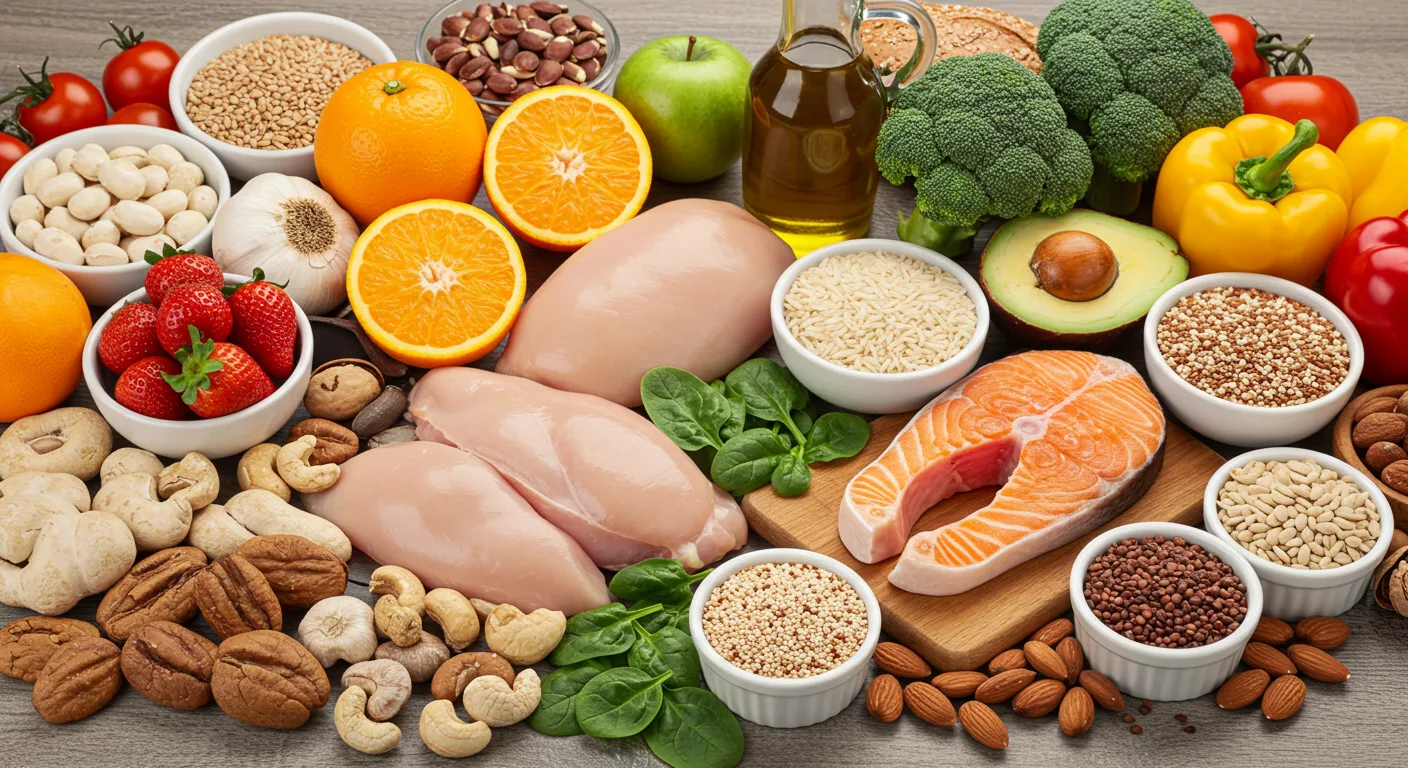Why This Matters More Than Ever
When I first started experimenting with diets, I was overwhelmed by the options. Keto. Vegan. Mediterranean. Paleo. DASH. It felt like everyone had an opinion, and every article promised a miracle. I didn’t just want to lose weight—I wanted to protect my heart after a borderline hypertension diagnosis. I needed something that actually worked, not just another trend. After trying several different plans, I finally settled on the DASH diet—a decision backed by real science and my own experience.
If you’re feeling stuck in the same loop—unsure of what works, what’s hype, and what’s sustainable—you’re not alone. This post unpacks the science behind today’s most popular diets, looks at how they impact your health, and helps you figure out what might work for you.
The Top 5 Diets of 2025
According to U.S. News & World Report, the leading diets today are:
- Mediterranean Diet
- DASH Diet
- Flexitarian Diet
- MIND Diet
- Mayo Clinic Diet
Let’s break them down.
Mediterranean Diet
What It Is
The Mediterranean Diet is based on traditional eating habits from countries like Greece, Italy, and Spain. Think fish, olive oil, whole grains, legumes, nuts, and loads of veggies. Red meat and processed foods take a backseat.
Does It Work?
Yes—and there’s no shortage of proof. A 2024 meta-analysis found that it significantly lowered both weight (up to 4.01 kg when paired with exercise) and BMI. Another study showed improvements in blood pressure and glycemic control, especially for people with type 2 diabetes.
Why It Works
- Rich in fiber and healthy fats that help with satiety
- Anti-inflammatory effects from antioxidants in plant foods
- Low in added sugars and refined carbs
Best For
- People at risk for heart disease or type 2 diabetes
- Anyone looking for a long-term, lifestyle-friendly plan

DASH Diet
What It Is
The Dietary Approaches to Stop Hypertension (DASH) Diet was developed to lower blood pressure. It focuses on fruits, vegetables, whole grains, lean proteins, and low-fat dairy, while limiting sodium and added sugars.
My Experience
I came to DASH after trying keto and feeling constantly drained. DASH felt doable. It didn’t ask me to cut out carbs or go vegan overnight. My blood pressure dropped, my energy improved, and I didn’t feel like I was fighting my food.
Does It Work?
Absolutely. DASH has a solid track record for lowering blood pressure (source) and supporting heart health. Even though weight loss isn’t its main goal, many people lose weight on DASH because it steers you away from processed, high-calorie foods.
Why It Works
- Reduces sodium while boosting potassium, magnesium, and calcium
- Encourages nutrient-dense, whole foods
- Naturally limits processed junk
Best For
- Anyone with high blood pressure or heart concerns
- People who want a structured but realistic plan

Flexitarian Diet
What It Is
Flexitarianism blends vegetarian eating with the occasional inclusion of meat. It’s less about strict rules and more about eating mostly plant-based with room for flexibility.
Does It Work?
A 10-week study comparing flexitarian and vegetarian households found that flexitarians had better adherence and enjoyment. That matters because diets only work if you can stick to them.
Why It Works
- Encourages fiber-rich, low-calorie plant foods
- Still allows animal products for protein and B12
- Lower risk of burnout from dietary restriction
Best For
- Meat-reducers looking for balance
- People struggling with strict vegan or vegetarian diets

MIND Diet
What It Is
MIND (Mediterranean-DASH Intervention for Neurodegenerative Delay) is a hybrid of the Mediterranean and DASH diets designed to protect brain health. It emphasizes leafy greens, berries, fish, and olive oil, while limiting red meat and sweets.
Does It Work?
Evidence is promising but not bulletproof. Some studies show neuroprotective benefits, while others find inconsistent results. Still, it’s one of the few diets targeted specifically at cognitive decline.
Why It Works
- Packed with antioxidants and omega-3s
- Reduces inflammation that can harm brain cells
- Limits harmful fats and sugars
Best For
- Older adults or those with a family history of Alzheimer’s
- People who already like Mediterranean-style eating

Mayo Clinic Diet
What It Is
Developed by the Mayo Clinic, this plan focuses on building healthy habits over time. It’s split into two phases: “Lose It” (kickstart weight loss) and “Live It” (long-term maintenance).
Does It Work?
While there’s less hard data on this one, its reputation and expert backing put it in the top five. It emphasizes gradual change rather than quick fixes, which is key for long-term health.
Why It Works
- Encourages daily movement and behavior change
- Focuses on portion control and food tracking
- Avoids overly restrictive rules
Best For
- People looking to overhaul habits slowly
- Those tired of on-again-off-again dieting

Comparing the Diets: What the Data Says
| Diet | Best For | Evidence for Weight Loss | Heart Health | Brain Health | Long-Term Sustainability |
|---|---|---|---|---|---|
| Mediterranean | Overall health, diabetes, heart | Strong | Strong | Moderate | High |
| DASH | Hypertension, heart | Moderate | Strong | Moderate | High |
| Flexitarian | Balance, sustainability | Moderate | Moderate | Low | High |
| MIND | Cognitive decline prevention | Limited | Moderate | Moderate | Medium |
| Mayo Clinic | Behavior change, habit-forming | Moderate | Moderate | Low | Medium |
So, Which Diet Is Best?
Honestly? There’s no one-size-fits-all answer. But here’s what we do know:
- The Mediterranean Diet has the strongest evidence for weight loss and heart health.
- DASH shines for managing blood pressure and overall nutrition.
- Flexitarian might be the easiest to stick with.
- MIND offers promise for brain health but needs more research.
- Mayo Clinic is about building habits you can live with.
From My Own Journey
Before switching to DASH, I tried keto, low-fat, and even strict vegan. Some helped short-term, but none felt sustainable. DASH was the first that didn’t feel like a chore. It improved my energy, helped with weight management, and more importantly—it supported my heart. That’s not to say it’s perfect for everyone, but it’s worth considering if you want a diet grounded in science and practicality.
Final Thoughts: Choosing What Works for You
The best diet isn’t the trendiest or the strictest—it’s the one you can live with, enjoy, and benefit from. Focus on:
- Whole foods over processed
- Balanced nutrition (not just cutting carbs or fats)
- A plan you can keep up six months—or six years—from now
Want to go deeper into any of these diets? Check out the original research from U.S. News & World Report, or explore detailed studies like this meta-analysis on the Mediterranean Diet.








